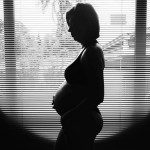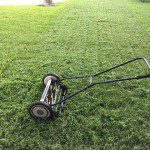
We were shopping–my daughter, Rose, and I. It was the second store I’d dragged her to, on an errand four stores long. I’d promised her at the outset that we couldn’t afford toys, only school supplies and groceries. She was tired and more than a little fed up, but she was looking forward to riding and playing with the steering wheel in one of the truck-shaped carts at Dollar Tree.
But when we got there, the store was crowded. There was not a single truck-shaped cart left in the messy jumble of carts at the front of the store. I started to take a plain, boring, grown-up cart.
Rose melted down.
I was fed up myself. I tried to soothe her for about ten seconds; when that didn’t work, I threatened to be “very cross.” That’s never worked once, but I keep threatening to be cross just as Rose keeps tantrumming to make a truck-shaped shopping cart appear. We all have our ways.
“Oh,” said a woman of about my age. “You’ve got one too.”
“Yes, she’s frustrated,” I said. “Rose, I’m going to be very cross.”
“How old?”
The brusqueness of the demand shook me a little. “Five. Rose, calm down.”
“Mine’s six.” The woman gestured to a girl who looked just like Rose– the same height and lankiness, the same brown bowl cut. The little girl was standing at attention by the counter, arms held stiffly at her sides, mute. “Yours is not a problem.”
I relaxed.
“Now, mine,” the woman went on, “She’s got ADD, ADHD, obstinate defiant disorder, she never stops. It’s always something, all day long.”
I balled my fists as the woman went on in front of her own daughter about what a horrible person she was, how pathological her personality, all the suffering and burden she’d caused. There wasn’t a kind word in the whole litany to soothe the rain of blows. According to her mother, the mute little girl was all bad.
I forgot about Rose’s tantrum, and concentrated on not having one of my own.
My mother used to talk like that.
Not when we were out and about; she usually complimented me then. But when we were alone, it began. Of all the children I’ve had, Mary, you hurt me the most. She repeated that the way some people repeat the Jesus prayer, over and over to get it through my head. Of all the children I’ve had, Mary, you hurt me the most. Every aspect of my personality had a diagnosis to go with it. I couldn’t be bubbly without her shaking her head and muttering “manic.” I couldn’t like acting in the children’s theater without it being because I was “narcissistic” and “a prima donna.” I couldn’t have severe irritable bowel syndrome that left me in agony for hours; I was a “hypochondriac.” I couldn’t dislike parties and prefer reading books, it was “asperger’s.” If I was absentminded, it was because I was “autistic” or “retarded.” Of all the children I’ve had, Mary, you hurt me the most.
She once joked in front of my siblings that they ought to tie me to a chair and leave me there until I stopped ranting, just like the courtiers did to George the Third. My siblings thought that was hilarious. They joked about it and worse things that I deserved, all the time. I don’t blame them for it. Children learn by example, and my mother was the example they had.
I learned far too much from her example myself.
There are days I still feel like I’m a disease.
It’s not that mental illness doesn’t exist. I was probably a very neurotic child and a handful, just like Rose (or any child for that matter) is often a handful. And Heaven knows any parent can lose their temper and feel that their child is a pathology for a moment when they’re in the checkout at Dollar Tree. Much as I believe the way she spoke in front of her daughter was wrong, I can’t really say what this mother and child’s relationship was usually like.
But what if this mother was like my own? What if this girl was like me? How can you tell whether or not you’ve actually got a mental illness, ADHD or Obstinate Defiant Disorder or anything else, when you’re living with a parent who truly believes that you– not aspects of you, but you, your personality, your selfhood– that you are a disease?
The little girl at the Dollar Tree checkout looked up at me– still mute, still with her arms stiffly at her sides. Her eyes were enormous, umber-colored spheres in an otherwise expressionless face.
Maybe she wasn’t shell-shocked. Maybe I only saw myself in her eyes, my own shell-shock.
Then again, maybe we were kindred spirits.
I was overwhelmed with the desire to do something– what, I didn’t know, but I felt I had to act, just in case I was right. I had to give a sign of solidarity. If this little girl was really like me, I wanted to give her a message she might remember for the rest of her life. I wanted to slip her a clue, a talisman, a firebird’s feather she could use to escape from what she’d been taught– not today, but someday, when flight was an option if only she knew that she wasn’t the problem.
Perhaps I would be the only person in all of her childhood, to tell her that her personality was not a disease.
The mother had stopped her venting as I got to this point, ending with “Day and night. She always gets her way.”
I settled on something. I had no idea if it was the right thing to say, but it felt like it needed saying.
I smiled into the child’s dark eyes. With as much admiration as I could muster, I told her, “You’re going to be a powerful revolutionary someday. This world desperately needs those.”
Someone returned a truck-shaped shopping cart to the jumble, and Rose climbed in.
We went on our way.
(image via Pixabay)













